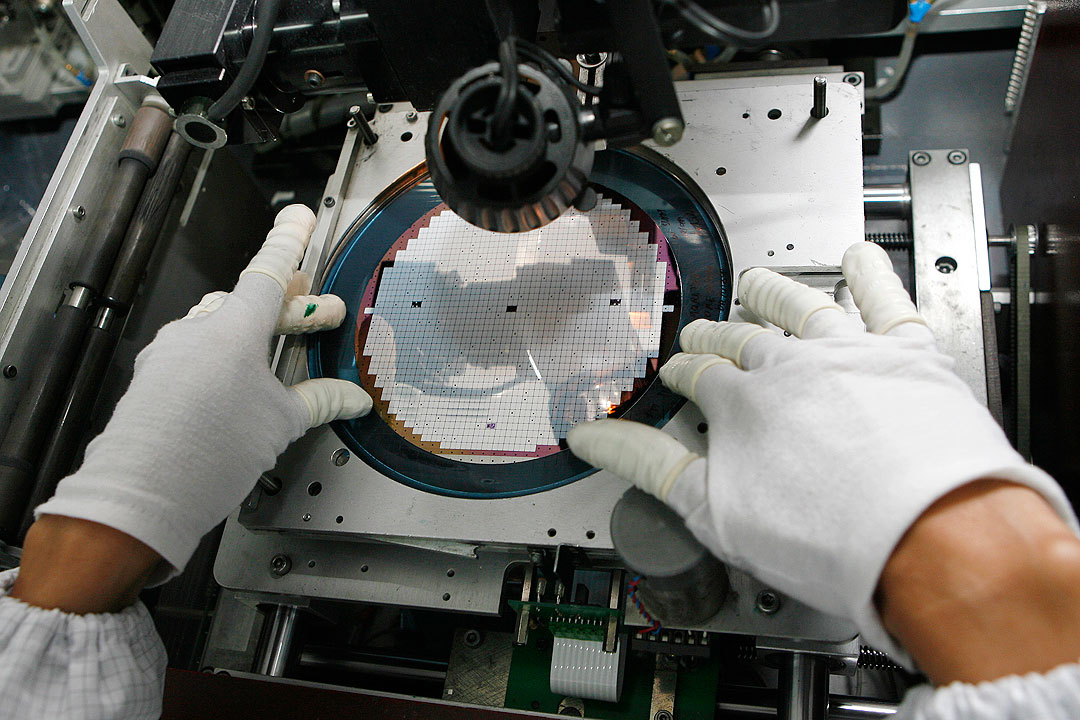
By Beatriz Marie D. Cruz, Reporter
LEGISLATORS must reinstate the 5% gross income tax (GIT) incentive in amendments to the Corporate Recovery and Tax Incentives for Enterprises (CREATE) Act, the chip industry said, noting that the option to pay tax on the basis of gross income will make the Philippines more competitive.
“We would still hope to see the reinstatement of the 5% GIT, at least until Philippine operating costs are comparable with Vietnam, Malaysia & other ASEAN (Association of Southeast Asian Nations) competitors for foreign direct investments,” Semiconductor and Electronics Industries in the Philippines Foundation, Inc. (SEIPI) President Dan Lachica said in a Viber message.
“The 5% GIT was part of the original agreement when foreign investors set up their factories in the Philippines,” Mr. Lachica added.
The House committee on ways and means approved the CREATE MORE bill in November 2023. A copy of the committee report was sent to reporters on Thursday.
House Bill (HB) No. 9794 or the CREATE MORE (CREATE to Maximize Opportunities for Reinvigorating the Economy) bill seeks to amend Republic Act No. 11534 or the CREATE law.
Under the proposed CREATE MORE, domestic and export companies, including those inside ecozones and freeports, will be entitled to duty exemptions, VAT exemption on imports, and the VAT zero-rating of local purchases.
Companies outside ecozones and freeports will also enjoy VAT zero-rating on local purchases as well as duty exemption on imports of capital equipment, raw materials, spare parts, or accessories, according to a copy of the committee report.
The proposed law also seeks to establish a 20% corporate income tax (CIT) rate on domestic and foreign corporations under the enhanced deduction income tax regime.
The current version of the bill gives offers more incentives to the export industry sector, according to the Confederation of Wearable Exporters of the Philippines (CONWEP).
“It did cover as much ground,” CONWEP Executive Director Maritess Jocson-Agoncillo said via telephone. “You can see the effort that it’s including even the industries producing smaller quantities for the export market.”
“HB 9754 defined a better differentiation delineating critical parameters between registered domestic enterprises from the registered export enterprises,” she added.
“The draft bill conscientiously integrated existing laws, such as the Export Development Act of 1994 (RA 7844), the GoNegosyo Act (RA 10644), the Creative Industries Act (RA 11904), and provisions to include marketing efforts of export companies in the enhanced deduction scheme,” Ms. Jocson-Agoncillo said. “Clearly, these provisions indicate the government’s intention to bolster the export industry sector.”
Ms. Jocson-Agoncillo said the provision on VAT on goods and services favors the cross-border doctrine of taxation for export groups.
“It clarifies the VAT application on goods and services directly attributable to export enterprises. It’s now aligned with the cross-border doctrine of taxation. We should not be imposed a duty tax of 12% for goods that we produce for the global market and would not be consumed domestically,” she said.
However, Ms. Jocson-Agoncillo said legislators should define how to classify “risk claims” for those who apply for VAT refunds.
The bill only states that VAT refund claims will be classified into low-, medium-, or high-risk.
“This is a provision that needs to be calibrated — the detailed parameters of what constitutes low, medium, high, and the implementation as well,” she said.
Filomeno S. Sta. Ana III, coordinator of Action for Economic Reforms, said foregone revenue from a “more generous” tax incentive system under the CREATE MORE bill could “trigger a fiscal crisis.”
“Ultimately, this threat of a fiscal crisis is what will block the new flow of investments and thus impede growth and employment,” Mr. Sta. Ana said via Viber.
“The major reasons why investment performance is mediocre are the lack of a coherent economic strategy, the drift in economic policy-making, the contradicting or see-sawing policies,” Mr. Sta. Ana said.
Foundation for Economic Freedom President Calixto V. Chikiamco said reducing taxes could deprive the government of resources to carry out its mandates.
“Lowering the CIT to 20% would lead to large fiscal losses, which government can’t afford at this time,” Mr. Chikiamco said in a Viber chat.
The ways and means panel is set to tackle the CREATE MORE bill on Tuesday before it is sent to the plenary for debates.



